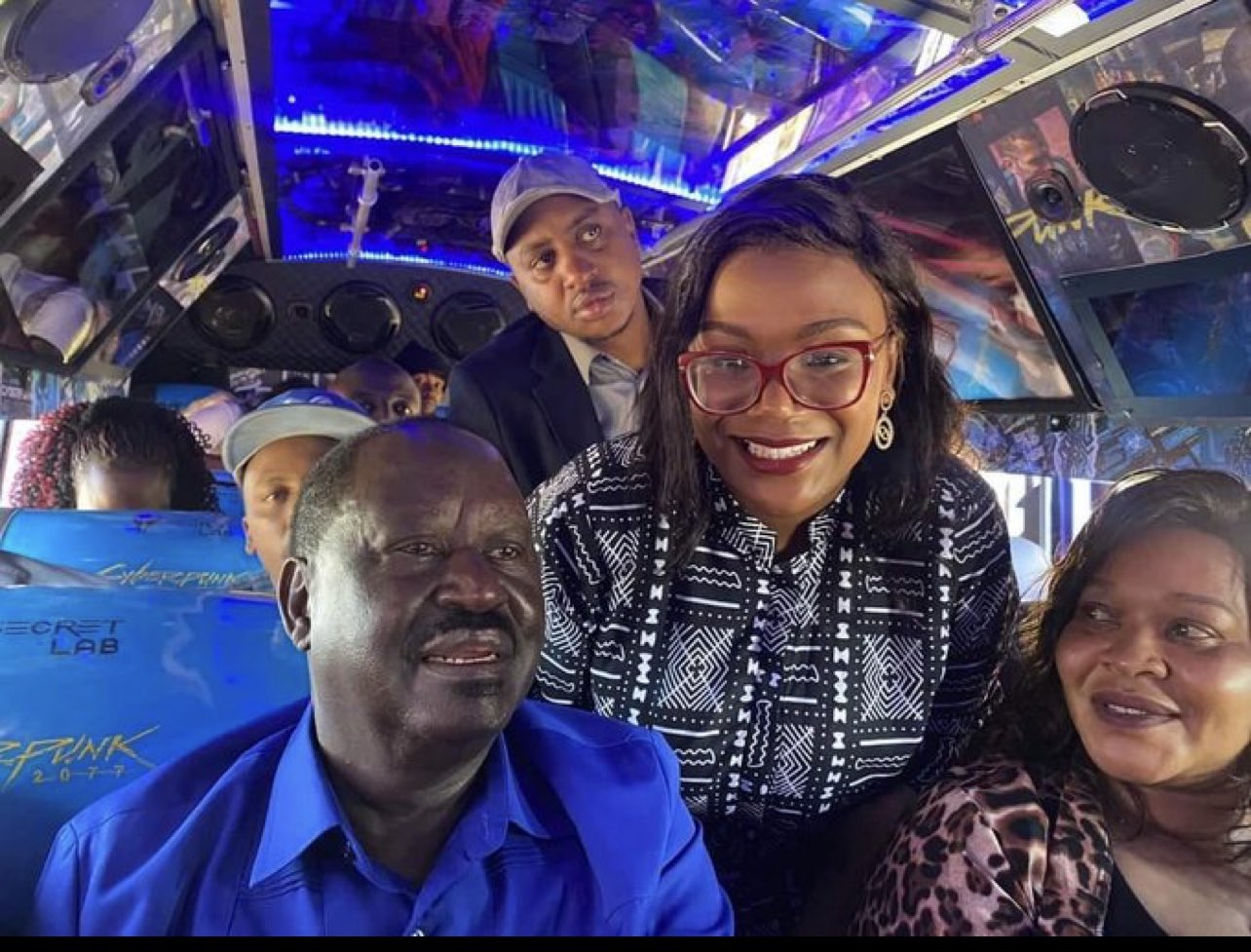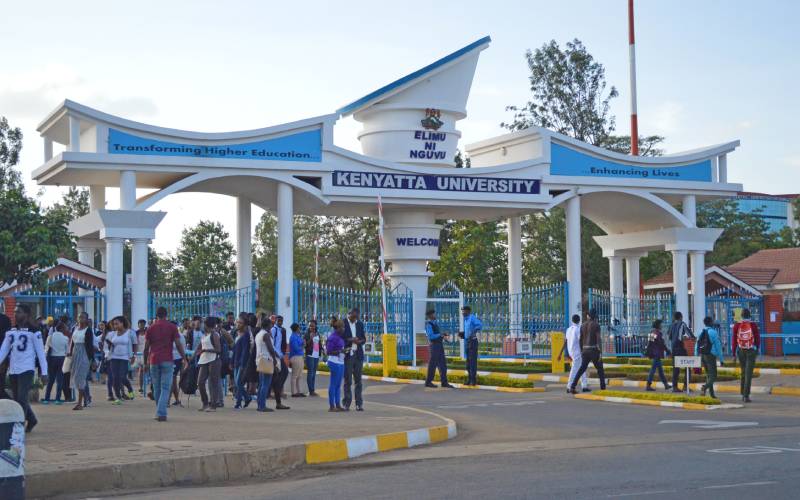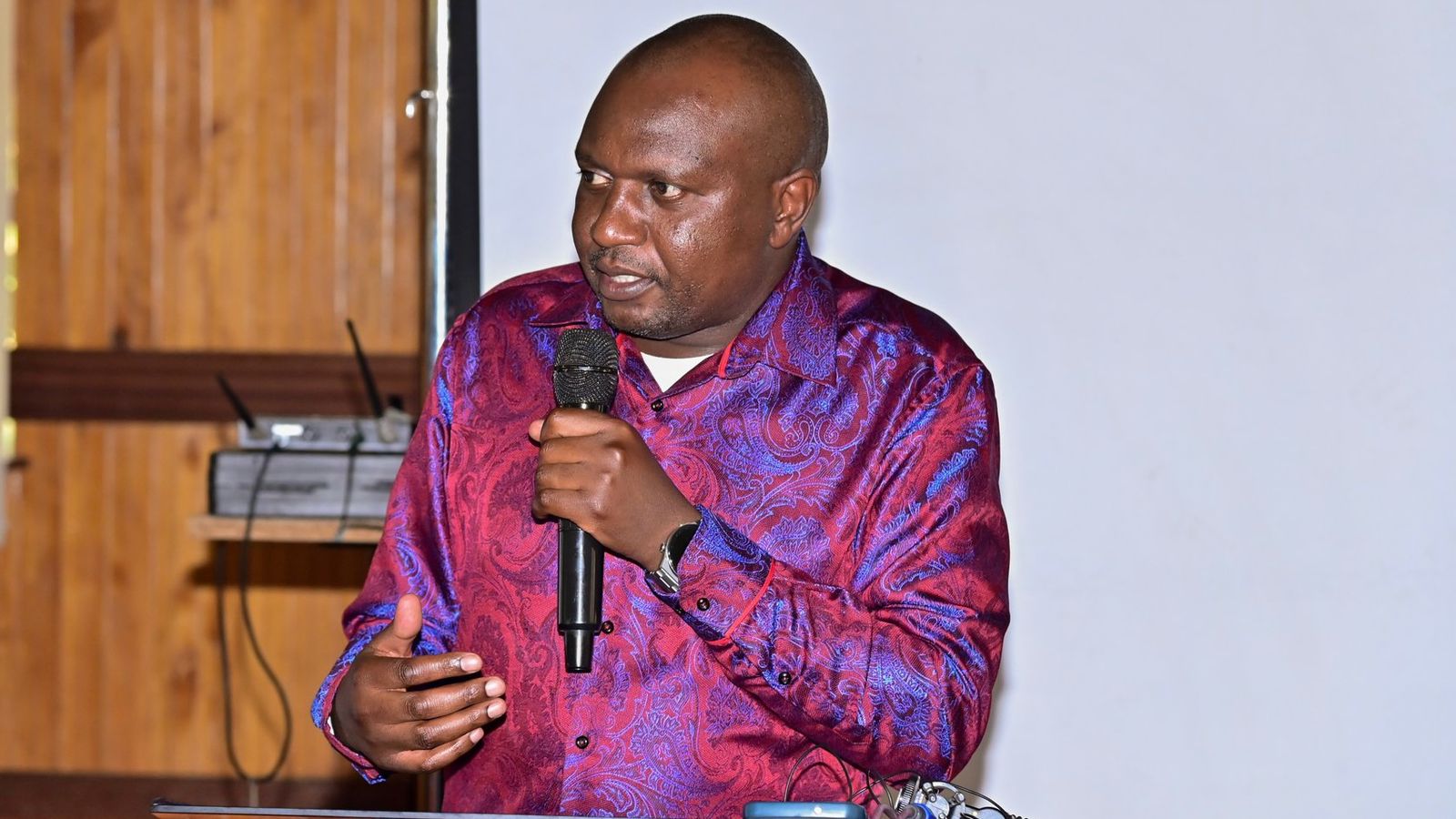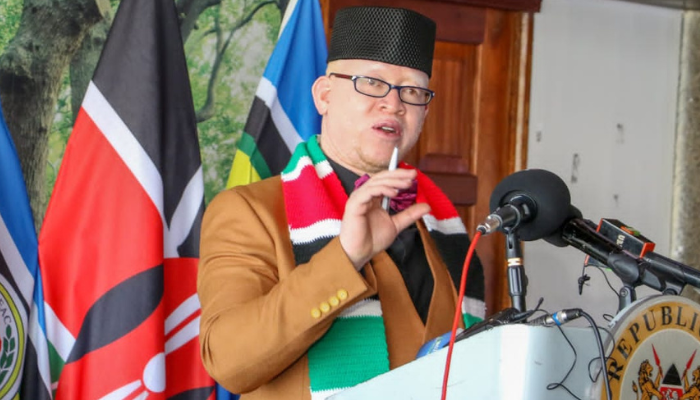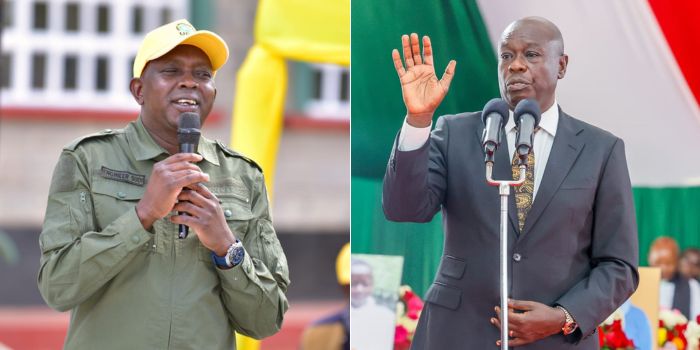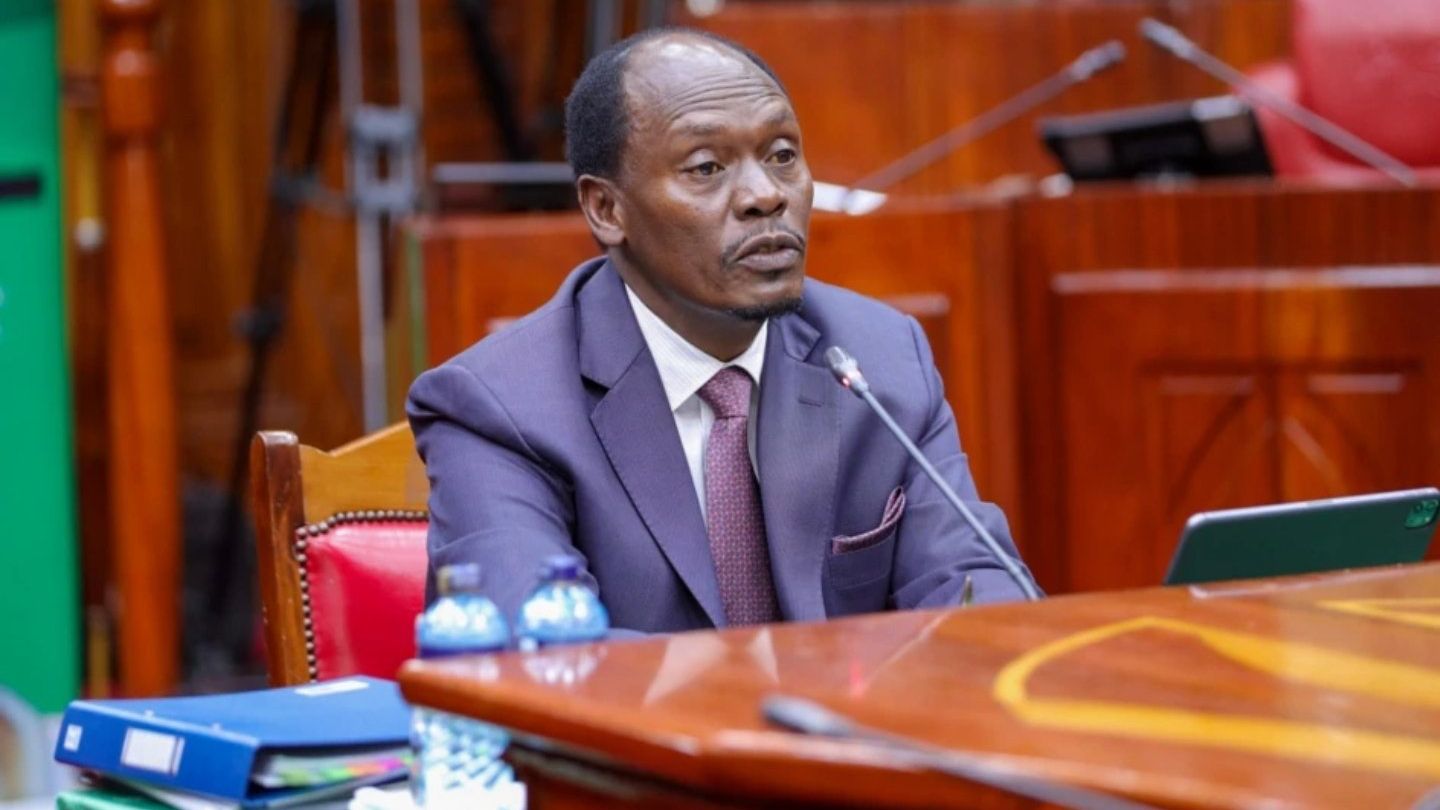Azimio la Umoja leader Raila Odinga on Monday, July 10 ditched his vehicle and boarded a matatu to Nairobi Central Business District (CBD).
Speaking while engaging Kenyans at CBD, Raila explained that he chose to board a matatu so that he can experience what ordinary Kenyans go through on a daily basis.
"Today we decided to experience what ordinary citizens feel every day. I left home and walked to the matatu stand where I bought a newspaper. I got into the matatu from Ngong area and came straight to CBD," Odinga stated.
The opposition chief stated that while in the matatu Kenyans told him that the cost of basic commodities has gone up and they are tired.
"They told me that from Ngong, they pay one hundred and fifty shillings daily for the round trip. In addition, they informed me that the cost of living has gone high and that the price of flour has reached two hundred and fifty shillings, sugar is almost five hundred, and the prices of fuel and rent have increased. They are tired," Odinga told the crowd.
Read More
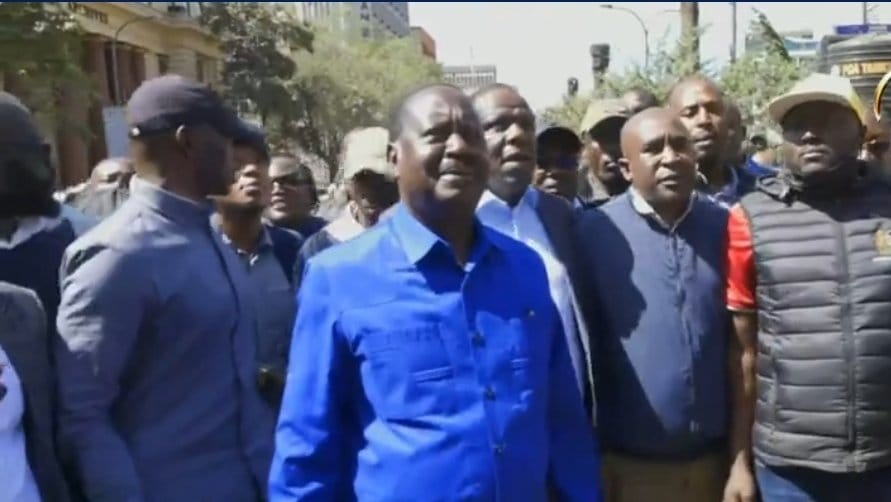
Raila called on Kenyans to come out on Wednesday to protest against the Kenya Kwanza regime saying that common citizens are not criminals.
“Sisi sio majambazi au watu wanataka ugomvi, tunafanya kila kitu na sababu. Wakenya wako na sababu, nia na uwezo ya kuleta mabadiliko kwa hali ya maisha yao. Gharama ya maisha imepanda na tuliambia Ruto asiongeze mzigo zaidi, punda imechoka amekataa kuskia, mambo ya Finance Bill mpaka itolewe,” he added.
On June 27, Raila asked Kenyans to limit the consumption of diesel and petrol and walk to work when necessary as a way to deny the government money and civil disobedience.
“Let us embrace tax boycotts, let us deny Ruto the fuel tax by limiting consumption of petrol and diesel. One way to do this is to carpool let us arrange to have regular journeys in a single vehicle whenever possible give each other a ride, cut down on non-essential travel, and walk instead of driving whenever possible,” said Raila.
He also asked Matatu owners to maintain fares but double their carrying capacity.
